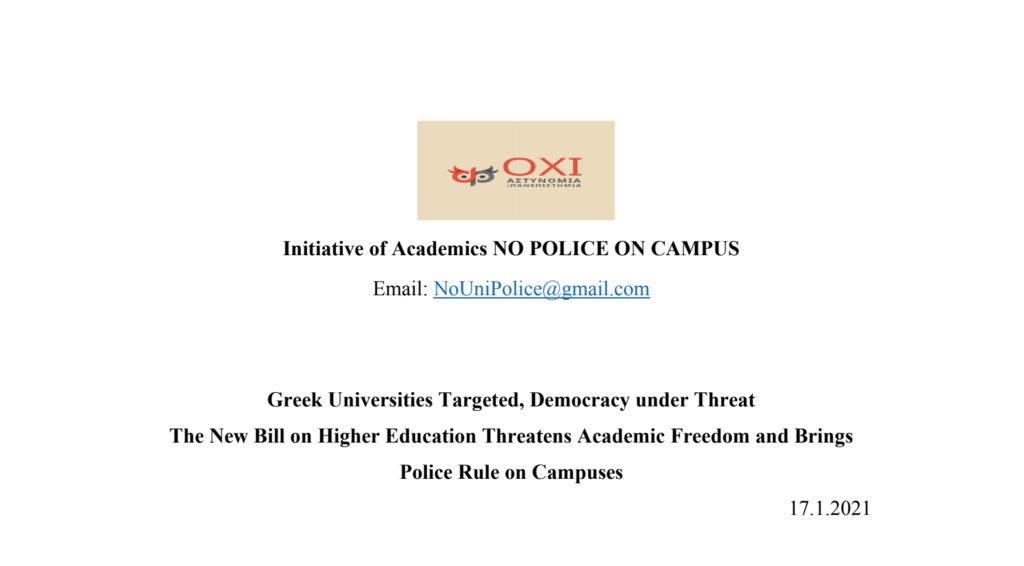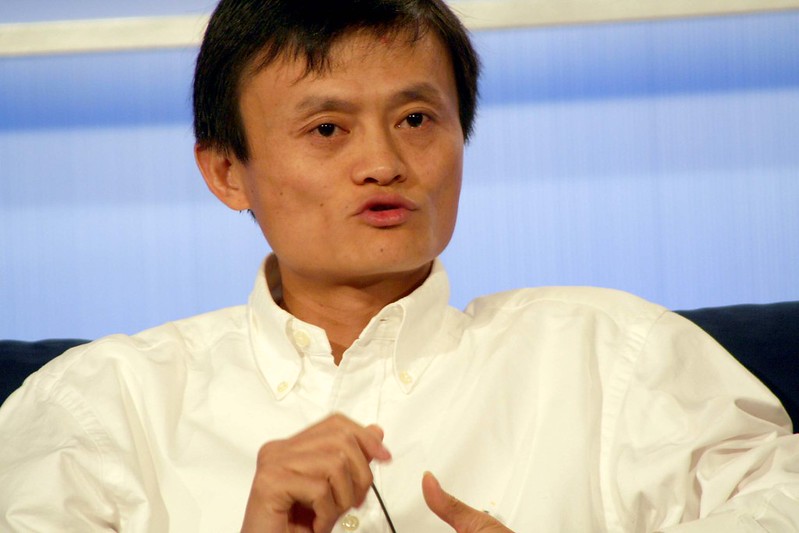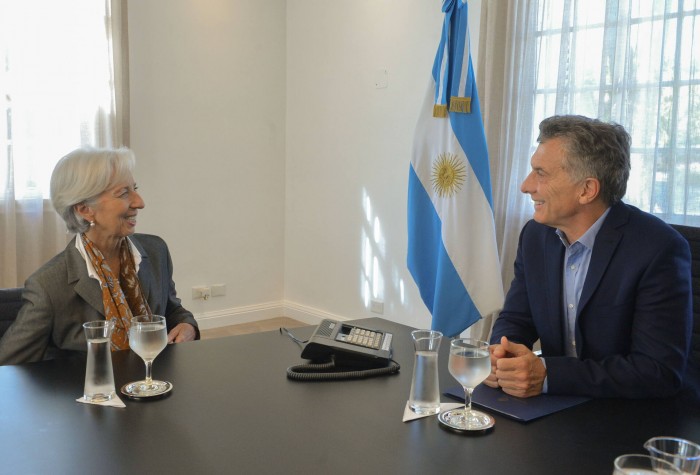This post is part of a feature on “The Political Power of Energy Futures,” moderated and edited by Katja Müller (MLU Halle-Wittenberg), Charlotte Bruckermann (University of Bergen), and Kirsten W. Endres (MPI Halle).
Debates about climate change have long entered political arenas through diplomacy, bureaucracy and regulations as part of worldwide environmental governance. Global efforts to foster greener energy increasingly supplement resource extractivism (IEA 2019). Yet, unfolding protests, from Fridays for Future to Extinction Rebellion, point to the insufficiencies of current measures. As lawsuits threaten the European mega-corporation RWE Energy with the responsibility for glacial melting in the Andes and Sioux sit-ins block the Dakota Access Pipeline in the USA, direct political action is on the rise to fight climate change by transforming energy infrastructure. Social anthropology’s analytical thrust to treat energy systems as sociotechnical constructs urgently needs to challenge the depoliticizing tendency inherent to energy decision-making (Boyer 2019, Howe 2019).

In particular, narratives of incremental improvement based on efficiency, productivity, and development discourse, must be re-examined in of the urgent need for renewable energy generation (Franquesa 2018, Gupta 2015). At the same time, political turmoil accompanies many renewable energy projects. These range from protests against involuntary displacement and the destruction of ecosystems by hydropower megaprojects like the Chinese Three Gorges dam to sovereignty struggles over Bolivian lithium reserves used in the production of solar batteries to the Spanish governments’ recent decision to hand over wind turbine development to big energy players. Beyond doom and gloom, energy’s production, distribution and consumption rise and fall with technological innovation (Winther 2013, Günel 2019). Our imagination of what makes human life easier and what improves living conditions for societies shapes the technologies we come up with and how we put them to use.

Over the last decades, anthropology and other academic disciplines have shown that energy systems are interdependent webs of sociotechnical and sociomaterial connections (Boyer 2014; Richardson and Weszkalnys 2014; Gupta 2015; Appel 2015). They are enmeshed in geographical conditions, spatial identities, traditions, norms and imaginaries as well as in political negotiations and financial assessments (Günel 2019; Moss 2020; Mitchell 2011; Bakke 2016). These assessments and negotiations have often privileged not only one energy technology over another, but one community’s or stakeholder’s future over another (Powell 2018). This grave inequality has led the critical social sciences to question what energy futures entail, how much adaptations are necessary or possible, what we can sacrifice for particular energy scenarios, and to ask who exploits what instruments of power to what particular ends (Smith and High 2017).
The contributions to this FocaalBlog feature discuss the political legitimacies and forms of power that become possible through renewables’ development and the greening of energy systems. Indeed, the development of renewable energy sources begs questions with high stakes: How does political decision-making on energy sources unfold, including expanding resource extraction, extending the grid, or developing renewables? How do historic injustices and exclusionary legacies of extraction, production and consumption affect future energy horizons? Do imperatives for greening energy create new role models in energy matters that shift the focus within and beyond the dichotomy of “the West and the Rest”? When do debates about local environmental priorities and energy rights undermine or bolster global climate targets? Which new forms of precarity and scarcity do large-scale infrastructural impositions by local or international powerholders entail?
Based on a panel at the 16th EASA Biennial Conference virtually held in Lisbon in July 2020, this collection of papers investigates the contradictions and contestations between the persistence of conventional energy systems and the rise of renewables within the complex operations of political power that affect our anticipated energy futures. From top-down policymaking regarding energy access to grassroots calls for climate justice, the contributions interrogate the policies and politics surrounding renewable energy, and the unintended consequences and alliances in its delivery.
Rethinking energy futures
After decades of constant growth in energy production and demand, climate change is no longer an abstract threat. We are therefore forced to scrutinize established foundations of energy systems. While energy research has already expanded the view from the misperception of localised, insulated extractivism to that industry’s real-world global conditions, climate change forces us to rethink our energy future on all levels.
Formerly the elephant in the room, all too often ignored in energy action, climate change increasingly factors into decisions on changing energy systems large and small. At least, this is reflected in the figures: In 2019, according to the International Energy Agency (IEA), global energy-related CO2 emissions flattened (slightly) at around 33 gigatons, resulting mainly from a sharp decline in CO2 emissions from the power sector in advanced economies (IEA 2020). This flattening is the result of the expanding role of renewable sources (mainly wind and solar photovoltaic), of fuel switching from coal to gas, and results from higher nuclear power output.
We need to expand our understanding of energy systems beyond sociotechnical systems to socio-ecological horizons. In his Capitalism and the Web of Life, Jason Moore (2015) proposes that the separation of humans and nature resulted in the exploitation of “Cheap Nature”, exacerbating resource use in excess of sustainability several fold. This extensive extractivism then fuelled the rise of capitalism, supporting financial systems that rest on exploitation of both minority societies and the interrelated human-nature-complex. Many energy systems, regardless of their sustainability status, threaten global living conditions and operate by privatizing profits and socializing risks and losses. Critical understanding of conventional energy systems and creative approaches to potential energy futures therefore require both intellectual and political engagement.
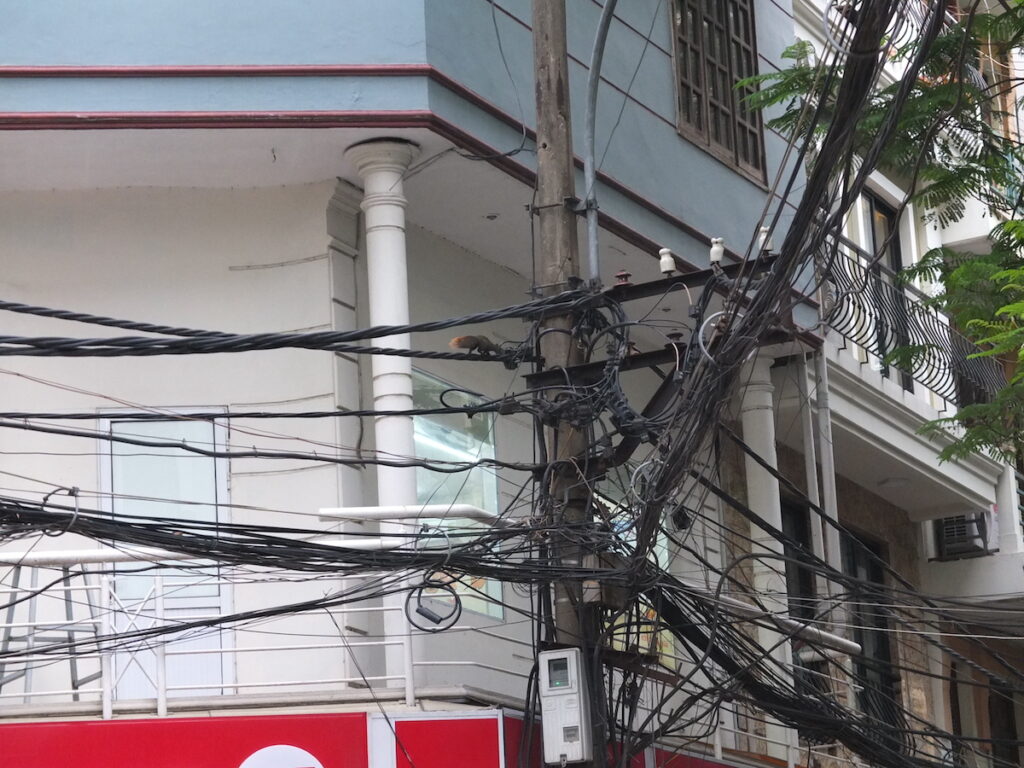
Bridging different scales of inequality and extraction, the blog contributors challenge the undemocratic and unequal ways of owning and producing energy. They question the financial assessments of energy production that ignore or miscalculate environmental and climate effects. However, as anthropologists, they also direct our attention to the human experiences and personal pathways forged through engagement with energy futures. Their case studies affirm that obligations rather than incentives are needed to make green technologies work for all and to reduce energy consumption. Cash cows of energy production within established political and market systems too often fail to provide just and sustainable energy systems.
Thinking of our energy future, CO2 emission developments indicate that socioecological considerations are gaining weight in energy debates and practice, as they flattened after reaching a historical height (IEA 2020). However, these shifts are not yet substantial enough to outpace political powers that focus on the economic or technological dimensions of energy production systems only. Time and again, official statements from politicians and others claim that faster or more consequential shifts to renewable energy are not feasible, thus revealing a reticence to realize sustainable energy futures. Arguments abound that energy networks and electrification need (fossil fuel based) development, or that they require at least bridging technologies to guarantee cheap and reliable supply of sufficient energy. In parallel, quarrels that a technology is not mature or marketable enough break out alongside complaints that solar energy was too expensive to survive on the market. Fears of economic losses, of declining voter favour or of structural change prevent energy transitions that are socioecological in nature and backed by sociopolitics (Sovacool 2016).

To accomplish energy transitions, voluntary obligations of private companies are not sufficient. Such obligations have hardly ever led to improvements of community goods, especially not if cutting profits was a necessity. The voiced by non-corporate stakeholders need to be heard and implemented through legally binding rules. Climate, nature and the planet cannot speak for themselves, but require a socioecological understanding of energy systems to be the basis for energy decision making. This does not imply that we can solve the climate dialectic (Goodman 2016). A socioecological energy system concept will not allow for a sudden political regulation of the climate crisis through regulating energy production. Yet, understanding the political powers at play in energy systems is essential so as to not become paralyzed and to retain instead agency in times of severe crisis: energy futures need to be envisioned, power mechanisms understood and analysed. The papers of this special issues contribute to this endeavour.
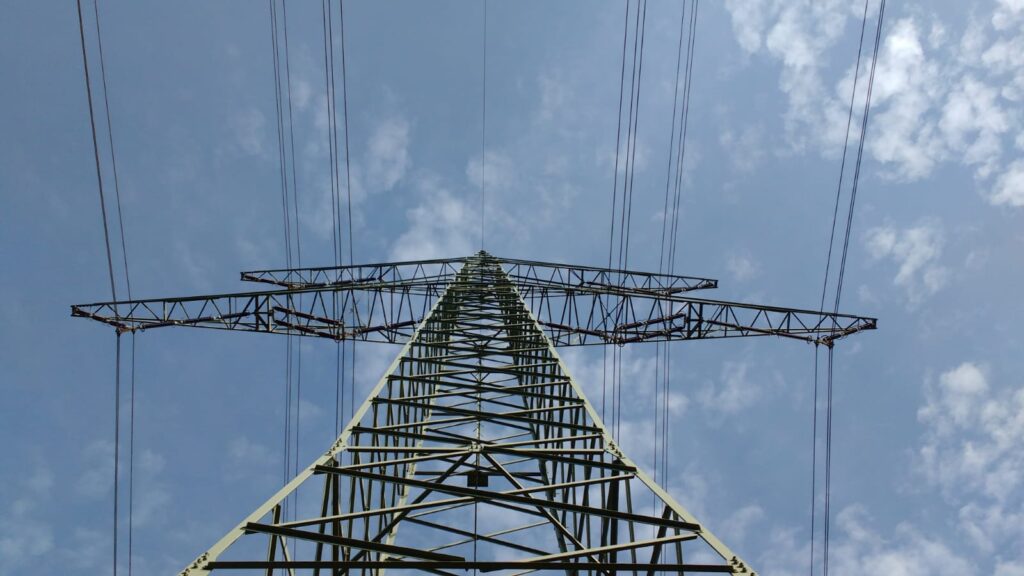
Ethnographic inquiries into energy futures
Our blog contributions take the reader to a variety of geographical settings and socio-political environments. Felix Lussem’s contribution explores the contemporary entanglement of political institutions and the energy industry in Germany’s lignite mining Rhineland, a region with a long history of large-scale resource extraction. As Lussem shows, this entanglement finds its most obvious expression in the practice of “creating facts” in order to (continue) providing cheap energy from the fossil fuel, while activists and other civil society actors try to prevent further damage to their environment and demand greater public participation in designing pathways towards a sustainable energy transition in the region.
Calls for an accelerated transition to climate-friendlier and cleaner energy sources have also gained momentum on the African continent. Some of the pitfalls and challenges of implementing green energy policies at the national/local level become apparent in Pauline Destree’s contribution. Rather than belonging to the future, renewables (such as hydropower) have dominated Ghana’s power sector in the past, while recent oil discoveries have spurred an increased rush for fossil fuel exploitation. Concomitantly, corporate solar investments gained salience during an energy crisis that hit the country in 2015. As Destree demonstrates, this led to a “renewable divide” in urban areas. While a few “green enclaves” benefit from their installed renewables, the financial situation of national utilities has worsened, resulting in higher tariffs for urban residents who continue to depend on the national grid.
Dragan Djunda’s contribution takes us to the Western Balkans, where small hydropower plants (SHPPs) have recently emerged as a dominant strategy for reducing fossil fuel dependency. This double transformation path to renewable energy and liberalisation of the energy sector as an adaptation to EU standards attracted large flows of foreign investment. But the damming of the last remaining free-flowing rivers in Europe has sparked its own protests, as the selling of SHPPs licences implies the ‘sell-off’ of locally used water and of pristine environs. In the Stara Mountain region in south-eastern Serbia environmental activists and local residents successfully defended rivers and villages against the impending damage from hydropower development in the region. As an unexpected outcome of the conflicts and contestations, the formerly decaying villages suddenly attracted increased touristic attention as well as financial support for community-relevant infrastructure projects.
In northern Portugal, structural reforms and austerity measures imposed by EU institutions to battle the country’s financial crisis have contributed to another path in renewable energy transition, a path that forges links into the global green bond market. Giulia Dal Maso’s contribution traces the history and location of wind farms in the wine-producing Viseu region that had been refinanced by the first Chinese green bond issued in Europe. Whereas the bond-issuing Chinese enterprise has since been able to extract rent from a previously public infrastructure, this refinancing did not produce any “extra good” for local people in the Viseu region, who keep struggling to pay their electricity bills.
From industrialized regions facing their own coal dependency and growing holes in landscapes of extraction in the German Rheinland to a Ghanaian balancing act between weathered dams for hydropower, new oil and gas discoveries, and the mushrooming of privileged green enclaves, from regional resistance to damming up the rivers of the Balkan mountains to residents in rural Portugal finding themselves poised between local pride in their wind and the pressure of paying for its energy delivery by a Chinese investor: What the contributions to this blog feature show is that pathways towards a renewable energy future are not straight-forward or unilineal, and global players in renewables finance usurp local infrastructures and drive their agendas forward, albeit being consistently challenged and scrutinised by more local imaginations of a sustainable future.
Beyond a focus on energy experts and policy pragmatists balancing public utilities and personal consumption as a calculative endeavour, anthropological investigations show how every energy provision relies on common resources and reshapes shared landscapes. Big players in energy production wield finance and power in ways that may undermine or further political and personal futures, and lead to surprising twists and turns in energy narratives. Yet suturing scales of energy engagement between corporate hierarchies, different state levels, and local energy producers and consumers, reveal that decisions on the form and type of energy used reach into deep historical experiences of developmentalist projects. Tracing the entangled relationships between people forging their energy horizons and reflecting on their demands and obligations to each other, brings to light their commitment to a collective future.
Katja Müller works as a social anthropologist at the Centre for Interdisciplinary Regional Studies, Martin Luther University Halle-Wittenberg and at the University of Technology Sydney. She conducts research on energy transitions, mining and climate change, as well as on digital cultural heritage.
Charlotte Bruckermann explores carbon as a frontline of value in the Department of Social Anthropology at the University of Bergen. Her current research focuses on carbon management in the creation of Chinese ecological civilization, with a focus on carbon offset forests, digital carbon accounting, and the decarbonization of everyday life in a coal region. Her book Claiming Homes was published in 2019.
Kirsten W. Endres is Head of Research Group at the Max Planck Institute for Social Anthropology, Halle/Saale, Germany. Her current project focuses on the interrelationship between the development of energy systems and the complex operation of modern states and state power in the Greater Mekong Subregion.
References
Appel, Hannah. 2015. Subterranean Estates: Life worlds of coal and gas. Ithaca: Cornell University Press.
Bakke, Gretchen. 2016. The Grid: The Fraying Wires Between Americans and our Energy Future. New York: Bloomsbury.
Boyer, Dominic. 2019. Energopolitics: Wind and Power in the Anthropocene. Durham: Duke University Press.
Franquesa, Jaume. 2018. Power struggles: dignity, value, and the renewable energy frontier in Spain. Bloomington: Indiana University Press.
Goodman, James. 2016. “The climate dialectic in energy policy: Germany and India compared.” In Energy Policy 99: 184-193.
Günel, Gökçe. 2019. Spaceship in the Desert: Energy, Climate Change, and Urban Design in Abu Dhabi. Durham, N.C.: Duke University Press.
Gupta, Akhil. 2015. “An Anthropology of Electricity from the Global South.” In Cultural Anthropology 30(4): 555-568.
Howe, Cymene, Ecologics: Wind and Power in the Anthropocene. Durham: Duke University Press, 2019. 241 pp.
IEA – International Energy Agency (2020), Global CO2 emissions in 2019, IEA, Paris https://www.iea.org/articles/global-co2-emissions-in-2019
Mitchell, Timothy. 2011. Carbon Democracy: Political Power in the Age of Oil. London: Verso.
Moore, Jason. 2015. Capitalism in the Web of Life: Ecology and the Accumulation of Capital. London: Verso. Moss, Timothy. 2020. Remaking Berlin. A History of the City through Infrastructure, 1920-2020. Cambridge: MIT Press.
Powell, Dana E. 2017. Landscapes of Power: Politics of Energy in the Navajo Nation. Durham, N.C.: Duke University Press.
Richardson, Tanya and Gisa Weszkalnys. 2014. Introduction: Resource Materialities, Anthropological Quarterly 87 (1): 5-30.
Smith, Jessica and Mette High. 2017. “Exploring the anthropology of energy: ethnography, energy, and ethics.” Energy Research and Social Science 30: 1-6.
Sovacool, Benjamin. 2016. How long will it take? Conceptualizing the temporal dynamics of energy transitions, Energy Research & Social Sciences 13: 202-215.
Winther, Tanja. 2013. The impact of electricity: Development, desires and dilemmas. Berghahn.
Cite as: Müller, Katja, Charlotte Bruckermann, Kirsten W. Endres. 2021. “Introduction: The political power of energy futures.” FocaalBlog, 7 April. https://www.focaalblog.com/2021/04/07/katja-muller-charlotte-bruckermann-kirsten-endres-introduction-the-political-power-of-energy-futures/
